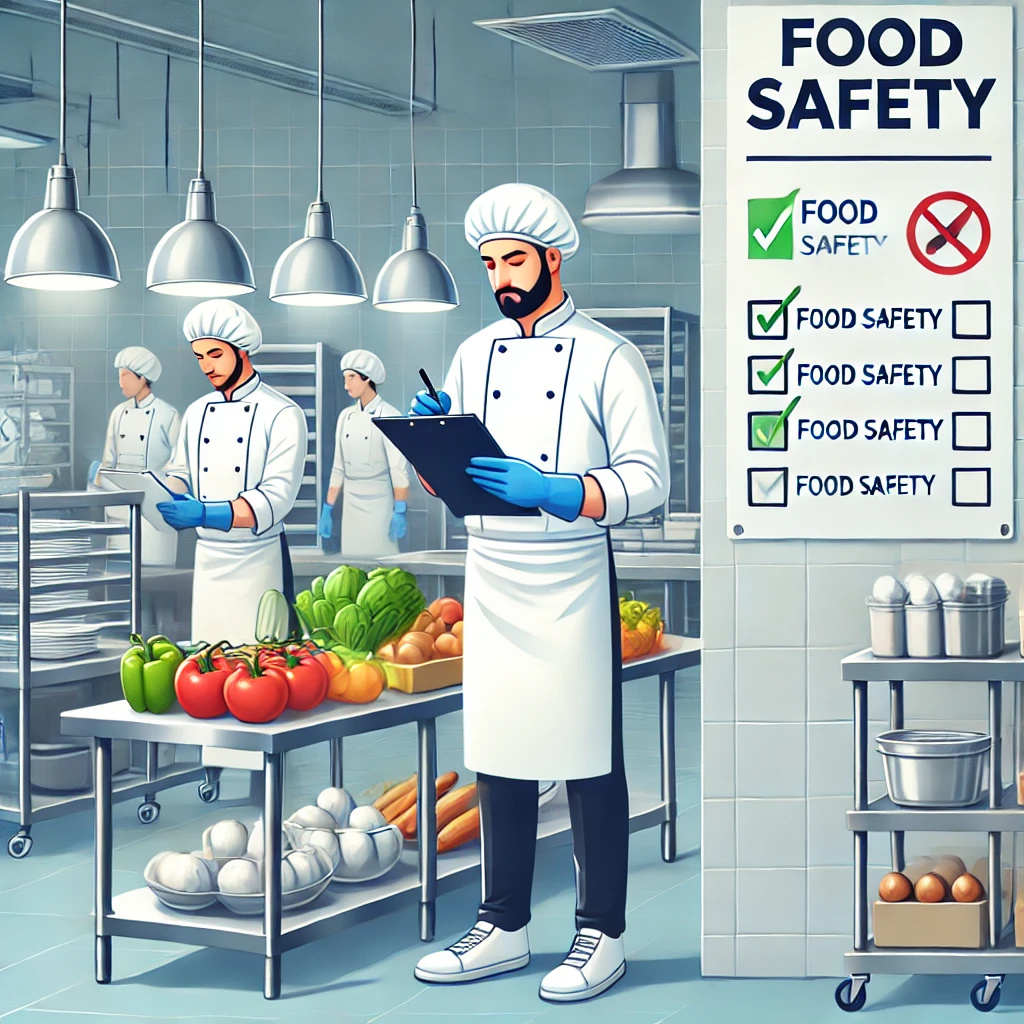Food safety is the foundation of any successful restaurant, ensuring not only customer health but also the reputation of your business. Whether you operate a QSR (Quick Service Restaurant) or an FSR (Full Service Restaurant), understanding and adhering to food safety regulations is critical. In an increasingly diverse dining landscape, these standards also intersect with broader efforts to promote inclusive dining, restaurant diversity, and customer engagement.
This guide explores the essential aspects of navigating food safety regulations, offering actionable tips and insights to help restaurateurs build compliant, inclusive, and customer-focused operations.
The Importance of Food Safety in the Modern Restaurant Landscape
Adherence to food safety regulations is more than just a legal requirement—it’s a trust-building measure. Diners expect safe, high-quality food, and failing to meet these expectations can result in financial loss, reputational damage, and legal repercussions. Moreover, in today’s world, food safety also involves cultural sensitivity and inclusivity, ensuring that everyone can enjoy meals without risk or exclusion.
1. Understand Key Food Safety Regulations 📝
The first step to compliance is understanding the laws that govern food safety in your region. These include federal, state, and local regulations.
Why It Matters
- Ensures compliance and avoids penalties.
- Enhances customer engagement by showing a commitment to quality and care.
Actionable Tip
Familiarize yourself with the FDA Food Code (in the U.S.) or equivalent regulations in your country. Stay updated on amendments and local health department requirements.
Real-World Example
Many restaurants implement rigorous HACCP (Hazard Analysis and Critical Control Points) systems to identify and control potential hazards in their operations.
2. Train Your Staff on Food Safety Best Practices 👨🍳
Your team is your first line of defense in maintaining food safety standards. Proper training ensures that everyone understands and adheres to safety protocols.
Why It Matters
- Reduces the risk of contamination and foodborne illnesses.
- Promotes a culture of accountability and safety.
Actionable Tip
Conduct regular training sessions covering topics like handwashing, cross-contamination prevention, and proper food storage. Provide multilingual resources to accommodate diverse staff.
3. Implement a Robust Cleaning and Sanitization Program 🧽
Cleanliness is non-negotiable in food service. A well-maintained environment prevents contamination and creates a positive impression for customers.
Why It Matters
- Supports compliance with health codes.
- Enhances customer engagement by reassuring diners of your commitment to hygiene.
Actionable Tip
Develop a cleaning schedule that includes daily, weekly, and monthly tasks. Use certified sanitization products and maintain clear logs to demonstrate compliance.
4. Cater to Diverse Dietary Needs Safely 🌎
In a world of inclusive dining, addressing diverse dietary needs—such as allergies, intolerances, and cultural preferences—is integral to food safety.
Why It Matters
- Expands your customer base by creating a safe and welcoming environment for all diners.
- Demonstrates restaurant diversity in action.
Actionable Tip
Label allergens clearly on your menu and train staff to handle allergy-related requests with care. Maintain separate prep areas and utensils for allergen-free dishes.
5. Use Technology to Monitor Compliance 📲
Technology can simplify the complex task of managing food safety. From temperature monitoring to automated checklists, the right tools can ensure consistency and accuracy.
Why It Matters
- Reduces human error.
- Streamlines compliance with food safety regulations.
Real-World Example
Chick-fil-A employs digital tools to track food temperatures in real-time, ensuring compliance across all locations.
Actionable Tip
Invest in smart kitchen equipment and software that monitor critical control points, generate compliance reports, and alert you to potential issues.
6. Build Relationships with Your Suppliers 🚛
The safety of your food begins with the ingredients you source. Partnering with reliable suppliers ensures you’re starting with high-quality, safe products.
Why It Matters
- Prevents contamination at the source.
- Strengthens trust in your supply chain.
Actionable Tip
Conduct regular audits of your suppliers. Choose vendors who follow sustainable and safe farming practices, reflecting your commitment to QSR and FSR strategies that prioritize safety and sustainability.
7. Stay Prepared for Inspections 🔍
Health inspections are a routine part of the restaurant business. Being prepared demonstrates your dedication to compliance and transparency.
Why It Matters
- Builds trust with regulatory bodies.
- Reduces the risk of fines or shutdowns.
Actionable Tip
Keep records of all cleaning schedules, temperature logs, and employee training. Conduct mock inspections to identify and address potential issues before they become problems.
8. Address Food Safety in Delivery and Takeout 🚚
With the rise of delivery and takeout, food safety extends beyond your kitchen. Ensuring that meals reach customers in safe conditions is paramount.
Why It Matters
- Protects your reputation in a competitive delivery market.
- Enhances customer engagement by providing consistent quality.
Actionable Tip
Use tamper-proof packaging and train delivery drivers on food handling protocols. Ensure hot and cold items are transported at the correct temperatures.
9. Promote Transparency with Customers 🌟
Being open about your food safety practices builds trust and fosters loyalty.
Why It Matters
- Enhances customer engagement by demonstrating care and accountability.
- Differentiates your brand in a crowded market.
Actionable Tip
Share your safety protocols through social media, your website, or in-store signage. Host events or workshops to educate customers about food safety and hygiene.
10. Continuously Improve and Innovate 💡
Food safety is an ongoing commitment that requires constant evaluation and improvement.
Why It Matters
- Keeps your restaurant ahead of industry standards.
- Aligns with evolving customer expectations for inclusive dining and sustainability.
Actionable Tip
Participate in industry conferences and workshops to stay updated on best practices. Engage with customer feedback to identify areas for improvement.
Prioritizing Safety for a Thriving Restaurant
Navigating food safety regulations is about more than compliance—it’s about creating a dining experience that reflects your values of care, inclusivity, and excellence. By integrating food safety into every aspect of your operation, you can build trust, foster customer engagement, and promote restaurant diversity.
Ready to take your restaurant to the next level?
Subscribe to URM Magazine, the #1 Industry Connector, for exclusive insights, tips, and strategies to grow your business. Let’s make your restaurant the ultimate loyalty destination! 🚀👏


 More Feature News
More Feature News







